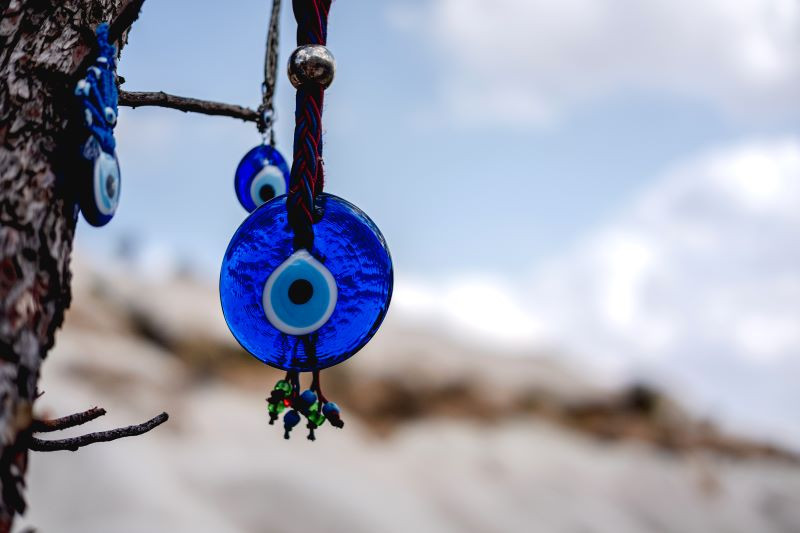Interdependence VS Codependence in Relationships

©️ Freepik
Interdependence in a relationship is like having a fantastic dance partner. You both move together, support each other, and have a blast. It’s about growing individually while also growing as a couple. You share goals, communicate openly, and respect each other’s space. It’s a beautiful harmony of teamwork and personal freedom.

Codependency, on the other hand, is like getting stuck in a not-so-great dance routine. One person might be doing all the moves, carrying the emotional baggage for both. Boundaries get blurry, communication can be a bit messy, and it’s easy to lose sight of your own needs. It’s a dance that might feel suffocating, with one person relying too much on the other, and it’s not the healthiest groove to be in.
Interdependence
Interdependence in relationships is like this dance where both partners are in sync. It’s not about one person doing their own thing or being totally dependent on the other. Instead, it’s this beautiful balance where both individuals contribute to the relationship’s well-being.
Think of it as having a teammate in life. You and your partner influence each other, share common goals, and have each other’s backs. When decisions come up, you tackle them together, considering each other’s thoughts and feelings. There’s a shared understanding of what you both want out of the relationship.
Being interdependent means enjoying your individual growth while also growing as a couple. It’s a cool way to navigate through life together, maintaining your independence while deepening the connection with your partner. It’s like having your own life but also having this awesome companion to share it with.

Some key characteristics of interdependence in relationships could be:
- Respecting Each Other: In a good relationship, both people really respect and value each other. They appreciate each other’s opinions and give space when needed.
- Growing Together and Apart: You can be yourself and grow individually. It’s like having personal goals while still supporting each other in what you both want.
- Having Common Goals: You and your partner share similar dreams and values. Even though you’re your own person, you work together to achieve things that matter to both of you.
- Talking Honestly: Communication is open and honest. You feel comfortable sharing your thoughts and feelings, making it easier to understand each other.
- Balancing Support: There’s a good balance between helping your partner and accepting help when you need it. It’s like teamwork where you’re there for each other.
- Facing Challenges Together: Tough times are seen as opportunities to grow together. Instead of pulling you apart, challenges bring you closer as a team.
- Knowing Your Limits: While you’re close, you also know where to draw the line. You respect each other’s space and personal interests.
- Being Supportive: Emotional support is a big thing. You’re there for each other during the ups and downs, offering comfort and encouragement.
- Sharing Lives: Your lives are connected – maybe you live together, make decisions about money together, and share friends. But you both still have your own lives.
- Solving Problems Together: When you disagree, you work together to find solutions. It’s not about winning an argument but finding a compromise that works for both of you.
Codependence
In a codependent relationship, it’s like one or both people depend way too much on each other for emotional support, figuring out who they are, and feeling a sense of purpose. It’s not a balanced give-and-take; instead, one person takes care of everything, and the other relies a lot on that care. This setup often leads to not-so-healthy behaviors, like supporting each other’s bad habits, and there’s often confusion about personal boundaries.
It’s important to understand that codependency comes in different levels, and it’s not a one-size-fits-all thing. If you notice these patterns in your relationship, it’s a good idea to get some support, like counseling, to work on making things healthier. Recognizing these things is the first step to building better dynamics and growing as individuals.
Some key characteristics of codependence in relationships could be:
- Overdependence: One or both partners rely too much on the other for everything—emotional support, validation, and even a sense of who they are.
- Blurred Boundaries: There’s confusion about personal space and identity. It’s like they’re so close that it’s hard to tell where one person ends and the other begins.
- Constant Caretaking: One person is always taking care of the other, often at the expense of their own well-being. It’s like they’re on a mission to make everything perfect for the other person.
- Fear of Being Alone: There’s a deep fear of being abandoned or left alone. This fear drives a constant need for reassurance and approval from the partner.
- Enabling Unhealthy Behavior: Sometimes, one person supports or covers up the other’s destructive habits or actions, like addiction. It’s not helping them get better; it’s making things worse.
- Ignoring Personal Goals: Personal goals and dreams take a back seat. They might forget what they wanted for themselves because everything revolves around the relationship.
- Struggling with Independence: Both partners find it hard to make decisions on their own. Choices are made with the other person in mind, not based on what’s best for each individual.
- Trouble Communicating: They might not talk openly or clearly. Issues get swept under the rug, and they avoid addressing conflicts directly.
- Low Self-Esteem: People in this kind of relationship might not feel good about themselves. They depend on the relationship to feel valuable and might not believe they’re worthy on their own.
- Repeating Problems: The same issues keep coming up, and they don’t get resolved. It’s like going in circles without finding real solutions.
- Can’t Say “No”: Setting boundaries and saying “no” is tough. There’s a fear of upsetting the other person, so they go along with things even when it’s not what they want.

How to Build Interdependence in a Relationship?
Building an interdependent relationship is like creating a team where both of you have each other’s backs, but you also keep your own identity intact. Here’s how you can make that happen:
Talk it Out
- Share your thoughts and feelings honestly. No holding back.
- Make sure you really listen when your partner is talking. It’s a two-way street.
Dream Together:
- Figure out common goals that you both can get excited about.
- Make plans together, so you’re on the same page about where you’re headed.
Respect “Me” Time
- Everyone needs their space. Respect each other’s personal time and boundaries.
- It’s cool to do your own thing; it doesn’t mean you’re drifting apart.
Cheer Each Other On
- Celebrate your partner’s wins and support their dreams.
- Let them pursue their hobbies and passions without any drama.
Team Chores
- Share the load when it comes to everyday stuff like chores and bills.
- Decisions are a team effort, so no one feels overloaded.
Sort Out Issues Together
- When problems pop up, see them as a chance to grow, not a disaster.
- Work together to find solutions that work for both of you.
Trust is Everything
- Keep things real. Be reliable and honest.
- Trust builds a strong foundation; don’t mess with it.
Share Your Feels
- Be open about your emotions, the good and the not-so-good.
- Support each other through thick and thin.

Embrace the Power of “We”
- Relying on each other is a superpower, not a weakness.
- Appreciate what each of you brings to the relationship.
Grow Together
- Stay open to change and evolving both as individuals and as a couple.
- Roll with life’s punches and keep working on making things awesome.
Remember, it’s a journey, not a one-time thing. Keep investing in your relationship, and it’ll grow stronger over time. We wish you the very best of luck!
How is your relationship going? Tell us in the comments!
You may also like: 5 Love Languages: Do You Speak All of Them?


